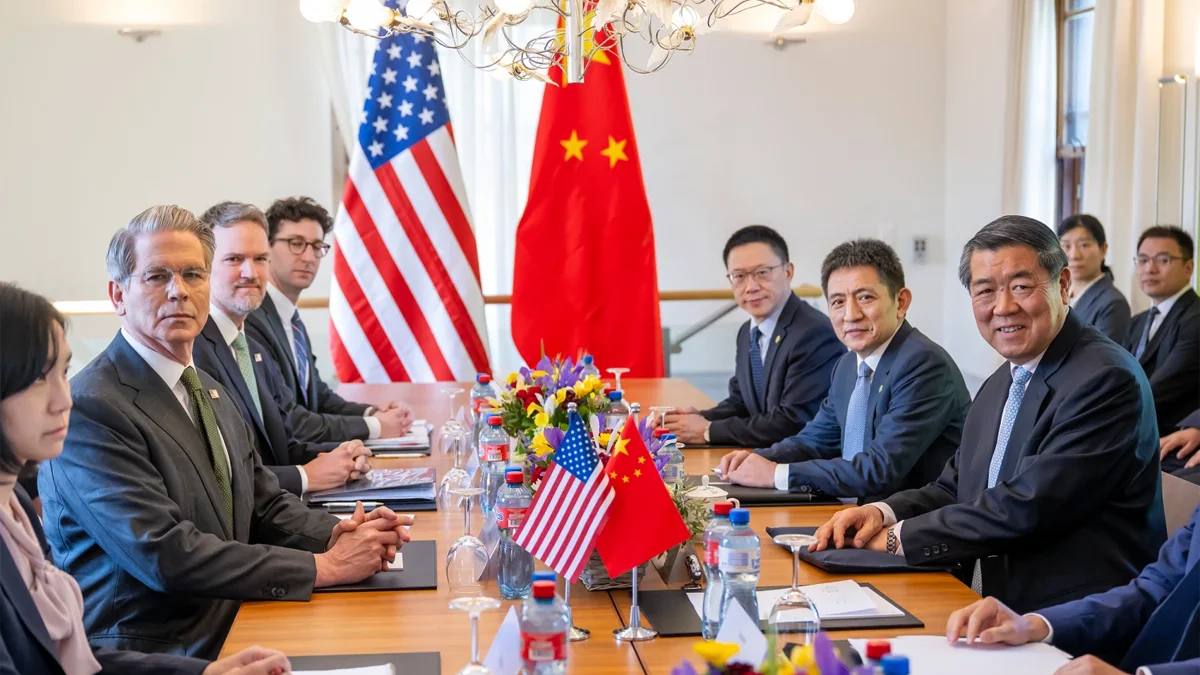Necessary Always Active
Necessary cookies are required to enable the basic features of this site, such as providing secure log-in or adjusting your consent preferences. These cookies do not store any personally identifiable data.
|
||||||
|
||||||
|
||||||
|

China has accused the US of undermining trade talks that recently took place in Geneva, Yahoo Finance reported. China criticized the US trade stance after the Trump administration warned that using Huawei AI chips in any part of the world would violate America’s export controls.
In a statement released last week, the US Department of Commerce said it would issue guidance clarifying that the use of Huawei Ascend chip breaches the export controls set out by the government. Additionally, the department said it will be warning the public regarding the “consequences of allowing US AI chips to be used for training and inference of Chinese AI models.”
But the Commerce Department has revised the wording in last week’s statement and dropped the ‘anywhere in the world’ phrase. The Government now says that the guidance is about “the risks of using PRC advanced computing ICs, including specific Huawei Ascend chips.”
Even with these changes, the US has not managed to impress China. Beijing noted the adjustment in US guidelines on Huawei AI chips controls. However, it maintained that the move was discriminatory and demanded that the US rectify its mistakes. On May 19, China claimed that negotiations had been conducted at all levels.
“China negotiated and communicated with the US at all levels through the China-US economic and trade consultation mechanism, pointing out that the US actions seriously undermined the consensus reached at the high-level talks between China and the US in Geneva.”
The latest guidance by the US government makes it difficult for Huawei to realize its plan of developing powerful semiconductors for smartphones and AI. Previously, this move had already suffered major setbacks due to US sanctions.
Huawei has become a leading technology firm in China following the breakthrough it recorded with the Mate 60 Pro in 2023. The smartphone giant achieved this milestone amidst US sanctions and has since expanded its production to electric vehicles and artificial intelligence. Huawei hopes to compete with Nvidia in production of AI chips in the near future.
Currently, Huawei’s Ascend chips are largely restricted to use by Chinese firms that have limited access to Nvidia’s most advanced semiconductors. However, the chips have been gaining entry into the wider market due to US export restrictions. According to industry experts, these chips are proving to be efficient in AI inference and supporting AI services.
Tensions over export control measures on Chinese tech point to the fragile relations that exist between the two economic giants even after the US-China Geneva trade agreement reached in Switzerland this month. The truce reduces the punitive tariffs for three months, which creates time to negotiate a more comprehensive deal that protects Chinese interests and balances trade.
Last week, Chinese chief negotiator Li Chenggang took a swipe at US AI chip export controls. Speaking in an event held in South Korea, Chenggang claimed that one country was overstretching the national security idea. In response US representative Jamieson Greer said the move was aimed at protecting local manufacturing capabilities. Both Li and Greer attended the South Korea event.
Although trade negotiations between the two countries have resumed, Chinese President Xi Jinping and the US President Donald Trump are yet to talk.
As the two economic giants continue to negotiate, the Chinese could leverage its rare metal dominance to push the US into easing AI chip controls. The US has been concerned about the tariffs that Beijing placed on rare earths, which is why the Trump administration participated in the Geneva trade negotiations.
Rare earth exports to the US dropped by 19% following the reciprocal tariffs, sending shocks to the global supply chains. Rare metals are important components in high-tech manufacturing including smartphones, weapons, and electric vehicles.
In recent weeks, the US has appeared to roll back on the AI chip export regulations to different countries introduced by the Biden administration. However, the Trump administration has been clear about keeping its advanced AI chips away from China. Last week, the US and UAE commenced discussions to allow Abu Dhabi to acquire some of the most advanced semiconductors manufactured by American chip makers.